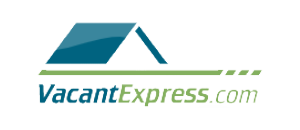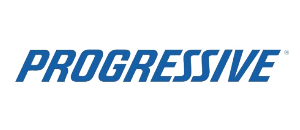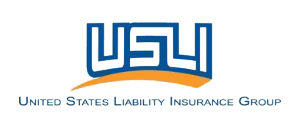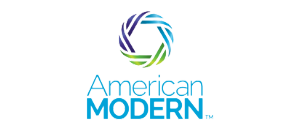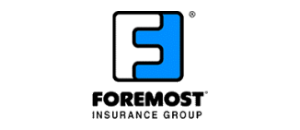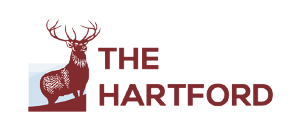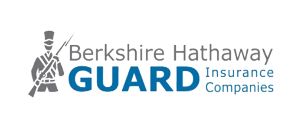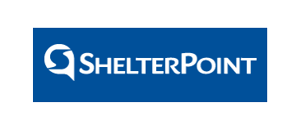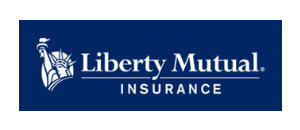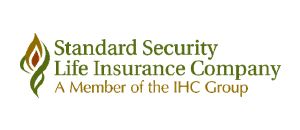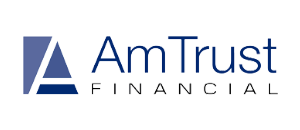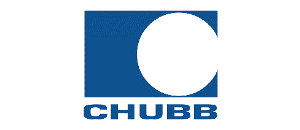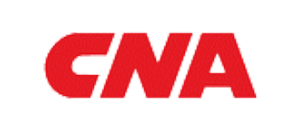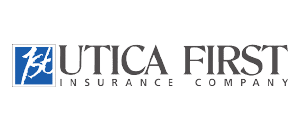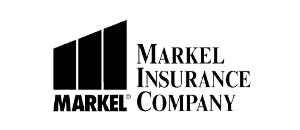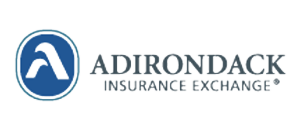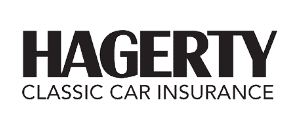About JD Prime Insurance
JD Prime Insurance Agency is an independent multi-line insurance agency providing personalized insurance coverage for businesses and families. At JD Prime, we do not work for an insurance company; we work for you! As independent agents we are free to choose the very best insurance company for your specific insurance needs. We strive to provide the very best possible coverage at the lowest price, all while serving you with honesty and integrity.
Our goal is to respond to the current and future needs of our clients in a professional and timely fashion. We will work alongside you to manage and prepare for all unknown risk which could turn into a loss or suspension of business operations when you are in a middle of a storm. It is more than insurance; we find the gaps in your insurance coverage and protect what is important to you.
As professionals and teachers-at-heart, the most important value we offer is helping to design an insurance program for our clients by offering a variety of insurance products and loss control programs. All directed to help limit the exposure to a potential loss or claim and to protect what is important to you.
Providing exceptional service is not just what we say…it’s what we do.

Meet The Team

Jim DelVecchio
Jim DelVecchio, MSM is an independent insurance professional with 18 years as a trusted advisor to families, individuals, business owners, executives, entrepreneurs and the self-employed. Jim partners with estate planning attorneys, CPA’s, CFP’s, trust officers at banks and private fiduciaries, designing competitive and tax-efficient insurance plans. Jim takes a personal approach to every aspect of his business – from assessing client needs, to shopping the insurance marketplace. Corporate officers, small business owners, and the affluent attest to Jim’s skill set as invaluable. Formerly a college teacher and instructor for 22 years, he is committed to “serving, not selling,” thereby sharing his expertise and empowering his clients.

Arlene Espiritu
Arlene started out in a small marketing firm after college but once her partner bought his first investment property, she was hooked to fixing up houses. She fine-tuned her painting and design skills and found great tenants for her partner’s rental properties. She started going to real estate investment group meetings, where she was introduced to Jim DelVecchio, principal of JD Prime Insurance Agency.
She is focused on personal lines products, investment property, flips, homeowners, renters and auto policies. She is customer focused and ready to assist her clients in finding the right coverage for their needs.
Any Questions?
Yes. There are some exceptions in a few states, but even if it isn’t mandatory, a worker’s comp policy is highly recommended. You wouldn’t want one little whoopsie to crush your big business dreams, would you?
When you’re a sole proprietor (self-employed) and all decisions are your responsibility – inevitably important business questions arise, including: Does a sole-proprietor need worker’s comp insurance? Sole proprietor with no employees typically is not required to purchase worker’s compensation insurance. However, if you’re injured on the job, a sole-proprietor worker’s compensation policy can help pay for medical expenses and replacement wages while you recover.
The driver who caused the accident is responsible for covering the cost of damages.
Umbrella insurance is surprisingly inexpensive, especially considering everything it can do. It would be a shame to get stuck with massive bills if the unexpected strikes, when it could have all been covered at a fraction of the cost. Liability incidents come in all shapes and sizes, so being ready for everything from the small to the not so small is key for your financial future.
A) Car accidents: Even if you keep those hands at 10 and 2 and almost always use your turn signal, you could cause a serious accident that includes hospitalization. In this case, your umbrella policy kicks in once the $300,000 liability coverage limit on your auto policy is reached.
B) Dog bites: Your little Westy-Poo hurdles your fence and attacks a neighbor, resulting in extensive medical costs. In this case, your umbrella policy covers the excess costs of hospitalization, care and rehabilitation after your homeowner’s liability coverage is maxed out.
C) Trampolines: Your kid’s friends are doing acrobatic flips, kicks and tucks on the trampoline in your yard and one of them makes a hard landing, getting seriously injured. In this case, your umbrella liability handles the cost after your homeowners or renters’ liability limits are exhausted.
Homeowner’s insurance offers coverage for a variety of risks that you may face as a homeowner that otherwise can be financially tough to cover out-of-pocket. These include: Property damage to others, bodily injury of others, fire and theft of the homeowner’s belongings.
Your homeowner’s insurance will never cover a flood. While homeowner’s insurance covers most other natural and man-made disasters, floods are an exception. That’s because of the (usually) predictable ways in which they happen and extreme damage they cause.
If you live in a flood-prone area, you may already have flood insurance. That’s because it’s a legal requirement for nearly all mortgages and financing for homes in a flood zone. If you don’t live in a flood zone, you’ll have to weigh the cost and risks yourself in order to decide whether you should buy flood insurance.
Yes, if it’s not natural. Water damage from sudden and accidental bursting of water pipes may be covered by your homeowner’s insurance, but a flooded bathroom after a thunderstorm would not be. Talk to your insurance agent about what is and isn’t covered under your homeowner’s insurance policy.
If your home or property has sustained any kind of damage or loss, make sure you take plenty of pictures of the damage with detail. Then, contact your home insurance company as soon as possible—whether that’s by phone or online. If you somehow don’t have access to your policy’s number or details, you can call your insurance agent for help.
Every home insurance policy has a deductible. Some deductibles are a dollar amount (typically $250, $500 or $1,000), while others are percentage-based according to the value of your home (i.e., a home that is valued at $300,000 with a 1% percentage-based deductible would have a deductible of $3,000). The deductible is the amount you must pay out-of-pocket for damage repairs. Therefore, if you have a $500 deductible and your house sustains $10,000 worth of damage, your insurance company will reimburse you $9,500—it’s that simple.
Legally, only two states (Arkansas and Utah) require some type of boat insurance coverage. There are additional insurance requirements in some states for boaters that meet specific criteria; ensure that you verify boat insurance requirements with your individual state marine board or other governing body.
Like many other insurance policies, boat insurance can typically be separated into a few types: liability, uninsured motorist, and collision/comprehensive coverages.
In some states breakdown and towing coverage can also be purchased.
Like car insurance, RV insurance is required in every state. All states require a minimum amount of liability insurance; in addition, some require uninsured and underinsured motorists coverage.
Collision and comprehensive insurance limits are determined by you, the consumer. Be sure to consider how you will cover your costs if you are in an accident and do not have adequate coverage.
Yes, your credit score does have a direct impact on your premiums. According to regulatory associations, there is a direct correlation between credit scores and individuals getting into accidents, and cancellation policies due to non-payment. Therefore, premiums are higher for lower credit scores.
A small business, such as a business operated by (1) one or (2) people out of your home, may not need worker’s compensation insurance, but it often needs more property and liability insurance than is provided in a standard homeowner’s policy. Call your agent for proper advice.
The main difference between general liability and professional liability is in the types of risks they each cover. General liability covers physical risks, such as bodily injuries and property damage. Professional liability covers more abstract risks, such as errors and omissions in the services your business provides.
Basic homeowner’s policies have limited coverage for jewelry. Depending on the value of the jewelry, you may want to purchase a Personal Articles floater, which provides additional coverage for jewelry higher in value. Contact your insurance agent to see how much is covered under your basic policy.
All insurance carriers cover rental cars differently. Some may give a small amount of coverage and some do not. Don’t assume the car is covered; give your Insurance agent a call to find out for sure.
The highest amount the insurance company will pay in legal bills and damages if you are sued is illustrated in the liability coverage section of your policy. If a guest or visitor slips and falls in your home, make sure you have enough coverage for potentially extensive medical bills and legal bills. Your agent can help you determine the right limit of liability to purchase.
Endorsements are used to make changes to your standard policy so it’s a little more specific to you. This is where you can specify special coverage for that heirloom jewelry or high-end electronics. Even identity theft coverage can be added to your policy with an endorsement.
If your home is damaged, the out-of-pocket deductible is all you need to pay to repair it under a (RC) Replacement Cost policy. An (ACV) Actual-Cash value policy will factor depreciation into the claim payout. This means you might have to pay both the deductible and some additional cash to restore it in today’s market. It’s generally worth the additional premium cost to ensure your home can be restored to its previous condition before the loss with only your deductible as your payout. Often, home repair or replacement is covered at (RC) Replacement Cost while personal property such as your furniture, appliances and clothing are replaced at (ACV) Actual Cash Value. It’s often possible to upgrade your policy to have your personal property insured at (RC) Replacement Cost value as well.
Your insurance company should be there for you 24 hours a day, 365 days a year. Ask your agent to detail the claims process for you and make sure that you will have access to a claim professional when you need it.
The vehicle you own, your personal priorities and your budget all factor into your unique auto insurance needs. Before comparing policies and insurers, evaluate how you use your car and what risks you face to figure out what options make the best sense for you.
a) How much do you drive?
b) Will you be using your cell for work or self-employment?
c) How much do you love your car- it’s appearance?
d) Where do you live – and park your car?
e) Who else will be driving the car?
f) What are your legal obligations?
g) Is your car owned, financed, or leased?
h) What are the different types of car insurance?
i) Do I need and what is gap insurance?
a) Does my business need (EPLI) Employers Practices Liability?
b) What is (HNOA) Hired and Non-Owned Auto Liability Insurance?
c) What is the Difference Between General Liability and Professional Liability Insurance?
d) How does my Loss-Ratio Affect my Business Insurance Premiums?
e) How is a Business Owners (BOP) Policy Different from a Commercial Package Policy (CCP)?
f) Why Does it Take Longer to get a Business Insurance Quote vs Personal Insurance Quote?
g) Why are (WC) Worker’s Comp Insurance rates so high?
h) What is New York state short-term disability insurance?
Featured Partners

